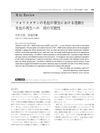Impaired Wound Healing in Transgenic Mice Overexpressing the Activin Antagonist Follistatin in the Epidermis
October 2001
in “
EMBO journal
”
TLDR Overexpressing follistatin in mice delays wound healing and reduces scar size.
The study demonstrated that transgenic mice overexpressing the activin antagonist follistatin in the epidermis exhibited significantly impaired wound healing compared to control mice. These mice showed delayed reepithelialization, reduced granulation tissue formation, lower tensile strength of wounds, and altered expression of keratinocyte markers. Despite normal keratinocyte proliferation and differentiation, the inhibition of activin by follistatin disrupted normal healing mechanisms, leading to delayed wound repair and smaller scar areas. Additionally, the transgenic mice displayed systemic abnormalities such as reduced body weight, open eyes at birth, and irregular hair growth, indicating a broader impact of follistatin on development and homeostasis. The findings highlighted the crucial role of activin in wound repair and scar formation.

